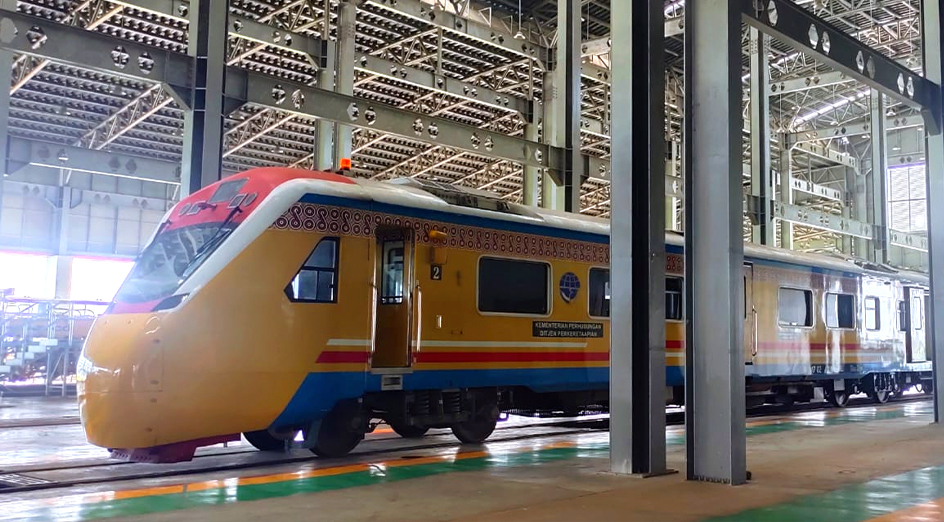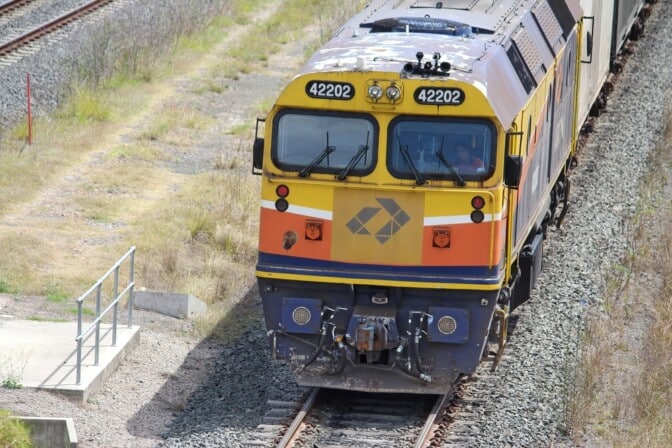Researchers from The University of Western Australia have helped identify and measure how Indonesian communities will be impacted by a major project to link some of the country’s rural areas with major urban centres and lift living standards across Indonesia.
“Men were likely to experience the largest negative short-term impacts with substantial changes in income or business opportunities – but we found that the shake-up would provide opportunities for women to diversify income sources and ease household burdens.” Associate Professor Kirsten Martinus, UWA School of Social Sciences
The research was led by the Australia-Indonesia Centre under its Partnership for Australia-Indonesia Research (PAIR) program, as part of a comprehensive study on the impact of the new rail line in Sulawesi to provide new information to policymakers.
Sulawesi has been long been recognised as a key economic corridor – the construction of the Trans-Sulawesi Railway is part of a push to connect its rural communities to key cities, towns and ports to create opportunities for business and community that will enable the island to compete with the thriving economies of Sumatra and Java.

Image: New train in terminal, South Sulawesi. (credit: AICPAIR)
The UWA-led study, Socio-economic impact and outcomes for communities on the first build of the Trans-Sulawesi Railway, has detailed the potential benefits – and negative impacts – of the project down the track.
Lead author and Director of UWA’s Future Regions Lab, Associate Professor Kirsten Martinus from UWA School of Social Sciences, said the study categorised three ways the project would impact rural communities and vulnerable groups – the short-term impact of construction, long-term impacts after the rail became fully operational, and the community impacts of land reclamation.
“The agriculture, forestry and fishing sector was the most negatively impacted in the short term through loss of farming land to land reclamation, a halt to farming during construction and loss of intergenerational income for families,” she said.
“Accommodation and food services, on the other hand, were the only industries to record short-term income increases and opportunities during construction.”
The study – a collaboration with researchers from Universitas Hasanuddin in Indonesia – also found major impacts for both men and women in the short term.
“Men were likely to experience the largest negative short-term impacts with substantial changes in income or business opportunities – but we found that the shake-up would provide opportunities for women to diversify income sources and ease household burdens,” Dr Martinus said.
“Women were most likely to benefit from the railway given the additional job opportunities in the accommodation and food services industries.”
With the railway set to be completed by 2030, the study made several recommendations to mitigate any negative impacts and make the most of the short-term opportunities during construction.
“We’ve recommended re-skilling workers to help the transition from truck-based logistics to trains, creating business and employment hubs around the stations, and encouraging opportunities for women in particular around those areas by means of technical support and encouragement to launch and manage their own businesses,” Associate Professor Kirsten Martinus said.
“The study also encourages investment in ports already experiencing rapid economic growth to maximise the benefits of the railway and allowing Sulawesi to compete in the national economy.”
You can read more about the recommendations in the full report here.

